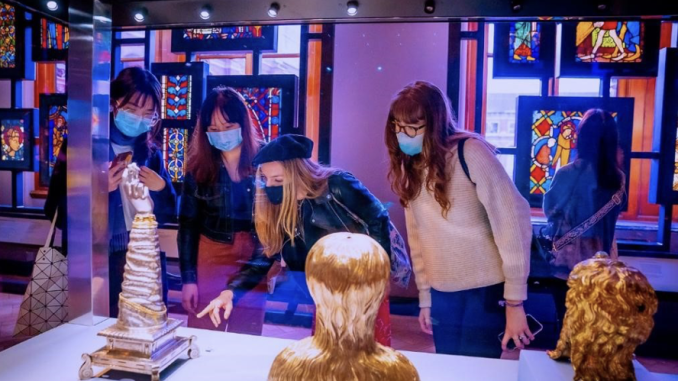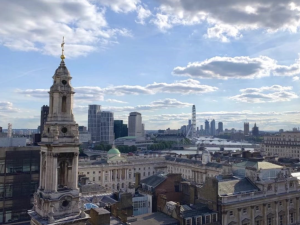
– By Haiyi
As part of the Arts and Humanities department, CMCI (Culture, Media & Creative Industries) offers a wide range of courses specialising in cultural studies and managing creative & entertainment industries. So which MA would suit you the most? What is it like to study at CMCI? Hopefully, this blog from a CMCI student will help you find out.
1. What is the MA programme like?
There are three MA programmes running in CMCI. As you can tell from the following names, each programme focuses on a particular aspect of CMCI and leads to different career paths.
- Cultural & Creative Industries: is more theoretical, with cultural studies around the CMCI industries.
- Arts & Cultural Management: is similar to Cultural & Creative Industries, but it comes with a more managerial nature that involves leadership and strategic development.
- Global Media Industries: focuses on the pan-media & entertainment industries.
Apart from the compulsory modules, there is also a long list of optional modules you can choose from to further tailor the study to your own career aspirations.
2. How to know which MA programme is the one for me?

- Know your strength and interests: Course names can be bewildering, but it would be easier to tell which MA programme better suits you if you have a clear picture of your aims. Here are a few questions you can ask yourself:
-
- Which sector/industry of CMCI are you most interested in? E.g., Museum and gallery, theatre, music, film, game…
- Do you wish to be a researcher, a manager, an entrepreneur or an artist in the future?
- What is your career plan in the CMCI industries?
- Research:
- Go to the CMCI page at King’s website and see each MA in detail.
- Talk to current students and alumni using Unibuddies, Facebook or LinkedIn. Prepare a list of questions. This step would help you understand what the course is really like.
3. How would the MA programme help my career?
Whichever MA programme you choose, the degree would help you understand the CMCI landscape, with certain research & analysis and managerial skills required in the job market. There are two types of pathways after the MA:
- Continue studying as a researcher, which usually leads to a PhD degree.
- Working in the CMCI industries. Many graduates found jobs in the specific industry that they are interested in.

4. Learning outside of the classroom.
Another exciting thing about studying at CMCI is the opportunity to connect with the industries. Some optional modules are conducted with leading organisations such as Tate. We also have the chance to partner with cultural organisations to do the dissertation. If you wish to combine theory and practice, CMCI is the right place to be!
I hope this blog will help you learn more about the MA programmes in CMCI! If you have more questions, do not hesitate to reach out. There are plenty of events and opportunities to connect with the department and ask questions. Stay tuned to the website and our socials. See you at King’s!
Instagram: https://www.instagram.com/kingsartshums/
Twitter: https://twitter.com/kingscmci
Department website: https://www.kcl.ac.uk/cmci/postgraduate/postgraduate

Leave a Reply